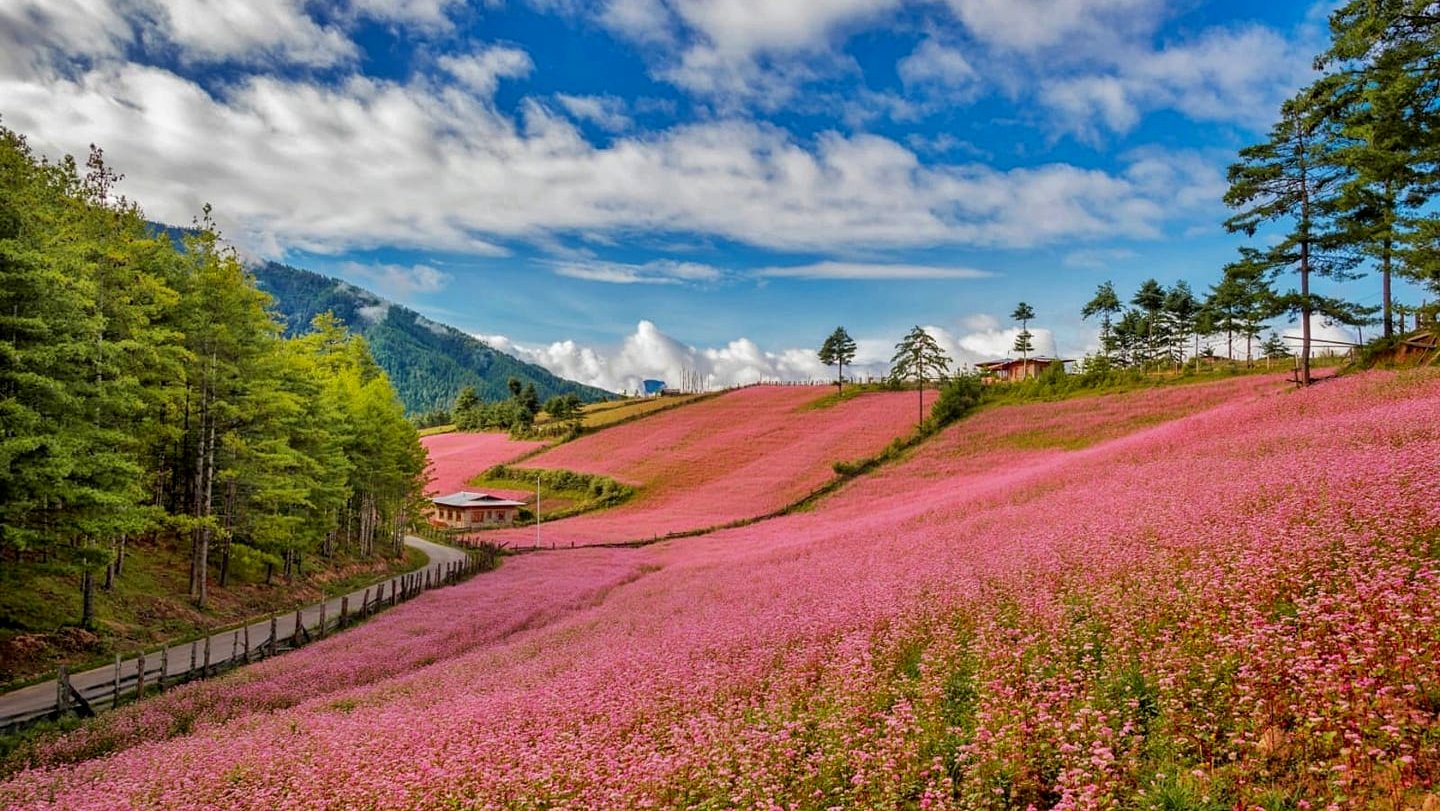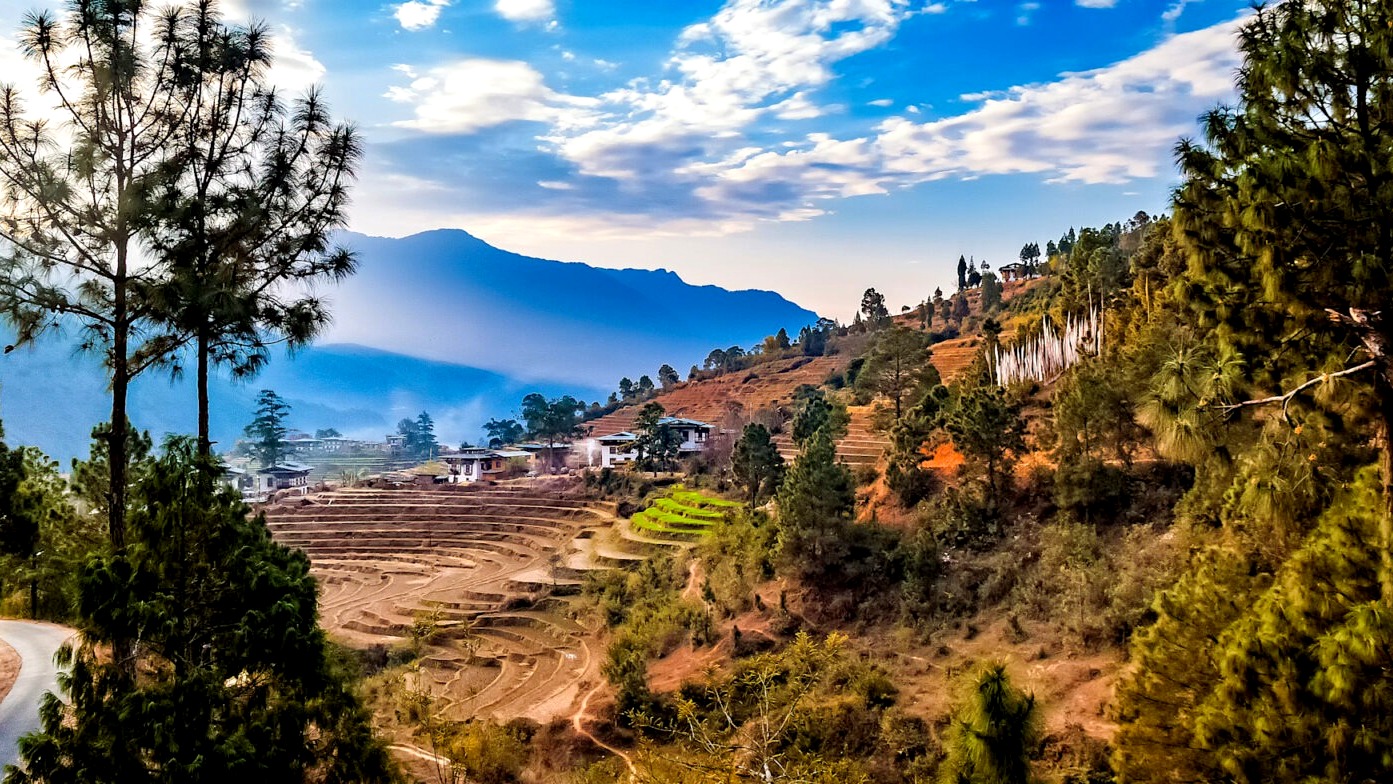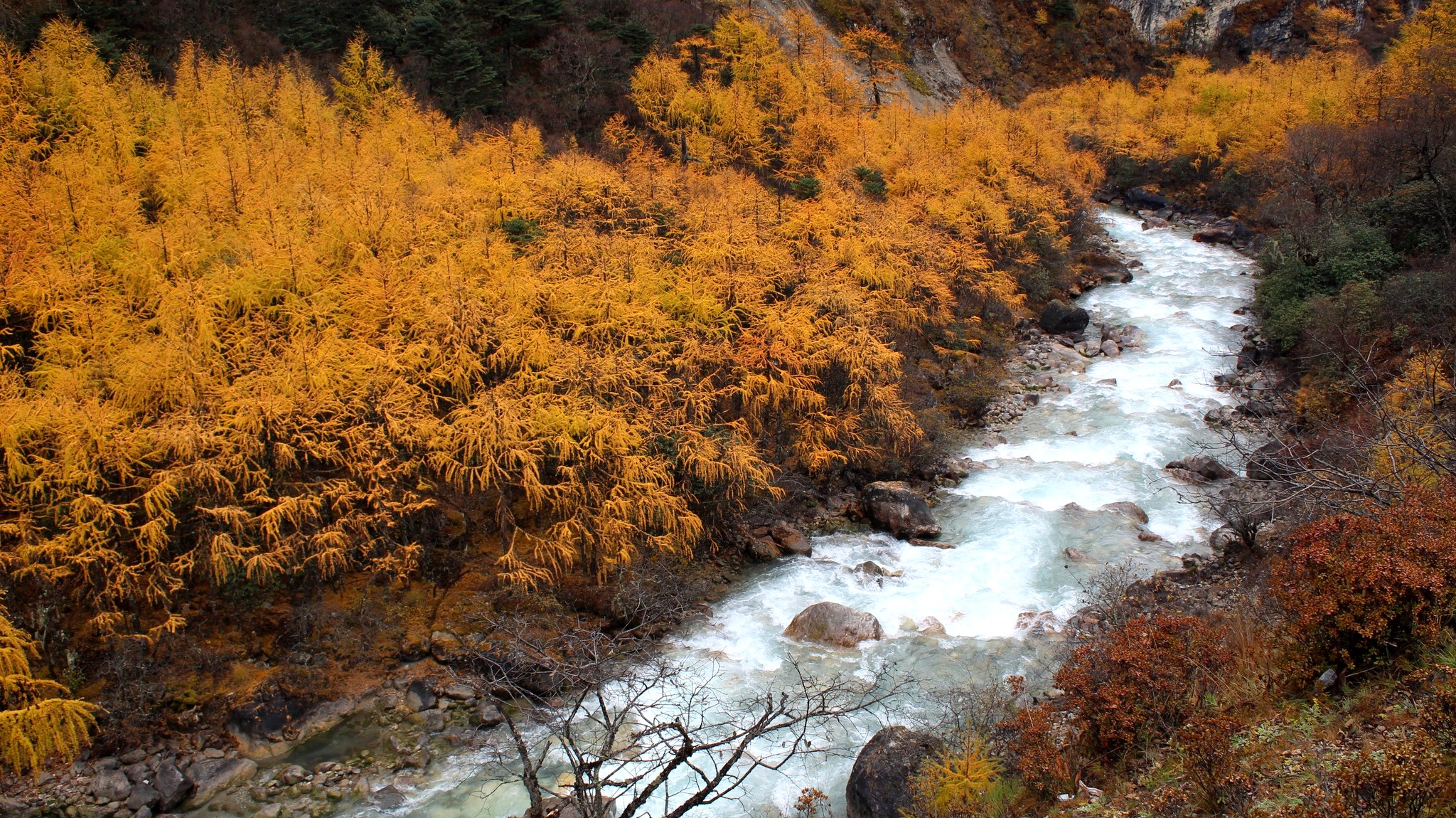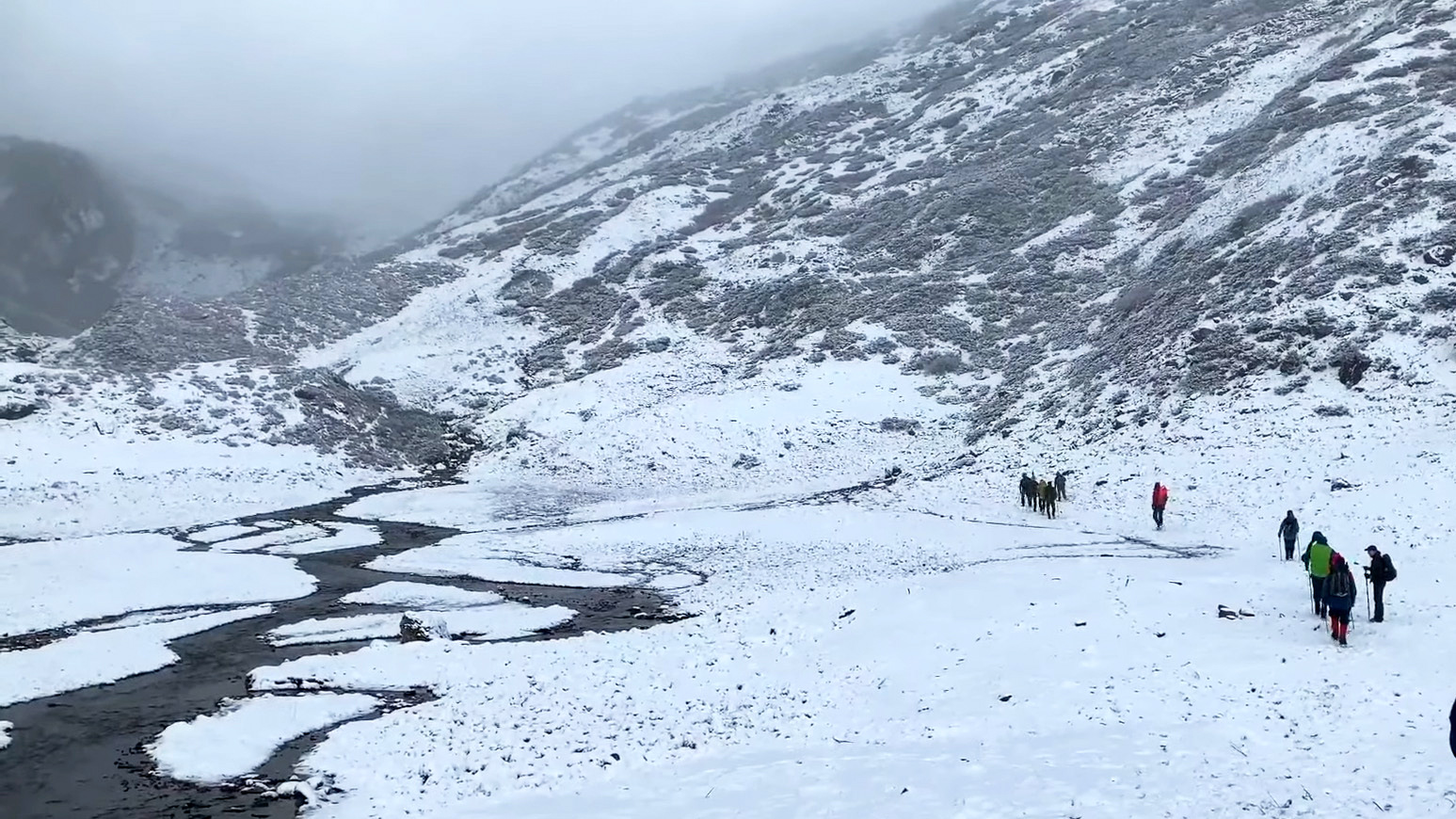- Spring (March to May)– Blooms and Festivals
- Summer (June to August)– Greenery and Solitude
- Autumn (September to November)– Clear Skies and Cultural Celebrations
- Winter (December to February)– Serene Beauty and Snow-Capped Peaks
- Planning Your Bhutanese Adventure
- Year-Round Insights
- FAQs of the Best Time to Visit Bhutan: Seasonal Insights for Travelers
Discovering the best time to visit Bhutan is essential for travelers looking to experience the unique blend of natural beauty, deep-rooted culture, and spiritual tranquility that this Himalayan kingdom has to offer. Whether you're drawn to the vibrant festivals of spring and autumn, the lush greenery of the monsoon season, or the serene snow-capped landscapes of winter, Bhutan offers distinct experiences across its seasons. This guide provides seasonal insights to help you plan your visit, highlighting the ideal times for trekking, cultural immersion, and enjoying Bhutan's stunning natural scenery. With climate, festivals, and activities varying throughout the year, choosing the right season can enhance your travel experience, allowing you to fully immerse yourself in the magic of Bhutan.
At Druk Holidays, we specialize in guiding travelers through the breathtaking landscapes and rich cultural tapestry of Bhutan, offering insights into the best times to visit. Understanding the diverse climate and seasonal activities is key to a memorable journey, and we're here to help you navigate these choices with ease. Whether you're eager to trek through vibrant spring valleys, experience unique festivals in autumn, or find solitude in the serene winter, our expertise ensures you capture the essence of Bhutan at its finest. Choose Druk Holidays for an authentic and enriching Bhutanese adventure, tailored to the rhythms of this magical kingdom's seasons.
Spring (March to May)– Blooms and Festivals
Spring in Bhutan, from March to May, is a season of rejuvenation and celebration, marked by the awakening of nature and vibrant cultural festivities. This period is characterized by a mesmerizing display of blooms across the valleys and an ideal climate that beckons travelers to explore the rich heritage and natural beauty of Bhutan. Here are the key highlights of visiting Bhutan in spring:

Vibrant Blooms
- Rhododendron Spectacle: Bhutan's hillsides and forests become a riot of color with rhododendrons and other wildflowers blooming in abundance, creating a photographer's paradise.
- Floral Valleys: The valleys are lush and green, offering breathtaking views and perfect conditions for nature walks and hikes.
Ideal Climate
- Mild Weather: Spring boasts warm days and cool nights, providing a comfortable environment for exploring Bhutan's outdoor attractions and historical sites.
- Clear Skies: The clear skies offer unobstructed views of the majestic Himalayan peaks, making it a fantastic time for trekking and sightseeing.
Cultural Festivals
- Paro Tshechu: One of Bhutan's most famous festivals, Paro Tshechu takes place in early spring, drawing visitors and locals alike to witness the elaborate masked dances and religious art forms that celebrate Bhutanese culture and Buddhist teachings.
- Punakha Drubchen: This unique festival reenacts the 17th-century battle against Tibetan forces, showcasing the rich history and martial tradition of Bhutan.
Trekking Opportunities
- Spring is a prime time for trekking in Bhutan, with trails leading through blooming landscapes and offering mild temperatures that are ideal for long hikes. Trekkers can explore the famous Druk Path Trek, Jomolhari Trek, and the Bumthang Cultural Trek, among others, to experience Bhutan's pristine nature and remote monasteries.
Travel Tips for Spring Visitors
- Advance Planning: Spring is a popular time to visit Bhutan, so it's wise to book your trip well in advance to secure accommodations and ensure participation in key festivals.
- Packing Essentials: Layered clothing is recommended due to the varied temperatures between day and night. Don't forget to bring good hiking boots if you plan on trekking.
Spring in Bhutan not only offers a feast for the senses with its natural beauty but also provides a deep dive into the country's cultural heart through its festivals. It's a season that perfectly embodies Bhutan's blend of natural splendor and rich traditions, making it an ideal time for travelers seeking both adventure and cultural immersion.
Summer (June to August)– Greenery and Solitude
Summer in Bhutan, spanning from June to August, is a time of lush landscapes and tranquil solitude, offering a unique perspective on the kingdom's natural beauty and cultural life. Despite being the monsoon season, the summer months reveal a vibrant, green Bhutan, teeming with life and fewer tourists, making it a perfect season for those looking to explore the country's serene environment and rich biodiversity. Here's what makes summer in Bhutan special:

Lush Greenery
- Vibrant Vegetation: The monsoon rains transform the landscapes into a deep green, with forests, valleys, and fields displaying the vibrant hues of nature in full bloom.
- Bountiful Agriculture: Witness the cultivation of rice terraces and other crops, offering a glimpse into the everyday life and agricultural practices of Bhutanese communities.
Solitude and Serenity
- Fewer Tourists: With the majority of travelers opting for the spring or autumn months, summer provides a more intimate experience of Bhutan's attractions, monasteries, and local life.
- Quiet Trails: Trekking paths are less crowded, offering a peaceful trekking experience. It's an opportune time for those seeking solitude and a deep connection with nature.
Unique Experiences
- Rain-Soaked Landscapes: The monsoon brings with it a unique beauty, with misty mornings, rain-soaked forests, and the sound of rushing rivers, enhancing the mystical atmosphere of Bhutan.
- Wildlife Watching: The lush vegetation supports an abundance of wildlife, making summer a great time for bird watching and spotting other wildlife in their natural habitats.
Cultural Insights
- Local Festivals: Despite the rains, local festivals and religious ceremonies continue, offering insights into the spiritual and communal life of the Bhutanese people.
- Warm Hospitality: The slower pace of tourism allows for more meaningful interactions with locals, providing deeper cultural immersion and insights into Bhutanese hospitality.
Travel Tips for Summer Visitors
- Rain Gear: Essential packing includes waterproof clothing, umbrellas, and sturdy, water-resistant footwear to navigate the wet conditions comfortably.
- Flexibility: Itinerary flexibility is key during the monsoon, as occasional heavy rains might affect travel plans, especially in more remote areas.
Summer in Bhutan is for the adventurous soul, willing to embrace the monsoon's embrace for the unparalleled beauty it brings. It's a season that rewards the intrepid traveler with its lush landscapes, quiet moments of reflection, and the warmth of Bhutanese culture, offering a distinct and deeply enriching experience of this Himalayan kingdom.
Autumn (September to November)– Clear Skies and Cultural Celebrations
Autumn in Bhutan, from September to November, is a season cherished for its clear skies, pleasant weather, and vibrant cultural celebrations. This period marks a transition from the lush monsoon season to the crisp winter, making it an ideal time for both adventure enthusiasts and cultural explorers to experience Bhutan's majestic landscapes and rich traditions. Here are the highlights of visiting Bhutan during the autumn months:

Clear Skies and Pleasant Weather
- Stunning Views: The post-monsoon clarity in the atmosphere offers unparalleled views of the Himalayan peaks, with the air fresh and visibility at its peak.
- Ideal Trekking Conditions: Autumn provides the perfect climate for trekking, with moderate temperatures and minimal rainfall, allowing trekkers to explore the highlands and valleys comfortably.
Vibrant Cultural Celebrations
- Thimphu Tshechu: This is one of Bhutan's biggest and most famous festivals, held in the capital city of Thimphu. It features days of religious ceremonies, dances, and local festivities, drawing both Bhutanese and international visitors.
- Black-Necked Crane Festival: Celebrated in the beautiful Phobjikha Valley, this festival marks the arrival of the endangered black-necked cranes and is a testament to Bhutan's commitment to conservation and cultural heritage.
Harvest Time
- Agricultural Bounty: Autumn is also harvest time in Bhutan when the landscapes are transformed into golden hues as the crops are brought in. It's a season that reflects the country's deep agricultural traditions and the importance of the harvest to Bhutanese communities.
Trekking and Exploration
- Popular Trekking Routes: With the weather conditions favorable, popular trekking routes like the Jomolhari Trek, the Druk Path Trek, and the Bumthang Cultural Trek are in their prime, offering breathtaking natural beauty and glimpses of remote Bhutanese life.
- Rich Biodiversity: The forests and national parks are alive with flora and fauna, providing excellent opportunities for nature lovers to explore Bhutan's rich biodiversity.
Travel Tips for Autumn Visitors
- Advance Planning: Autumn is a peak season for tourism in Bhutan, so it's advisable to book your trip well in advance to ensure availability of accommodations and guided tours.
- Festival Participation: Plan your visit around the festival dates to experience Bhutan's cultural richness. Participating in or witnessing these festivals can offer deep insights into the spiritual and communal life of the Bhutanese people.
Autumn in Bhutan is a symphony of natural beauty, cultural festivities, and pleasant weather, making it one of the best times to visit the kingdom. Whether you're trekking through the stunning landscapes, participating in vibrant festivals, or simply enjoying the beauty of the harvest, autumn in Bhutan offers a memorable and enriching experience for every traveler.
Winter (December to February)– Serene Beauty and Snow-Capped Peaks

Serene Beauty and Snow-Capped Peaks
- Snowy Vistas: The mountains are adorned with snow, offering breathtaking views of the Himalayas in their most majestic form. The clear winter skies provide a stark backdrop to the white peaks, creating stunning landscapes.
- Peaceful Atmosphere: With fewer tourists visiting during these months, Bhutan's natural and cultural sites offer a more personal and contemplative experience.
Cultural Immersion
- Winter Festivals: Despite the cold, the Bhutanese calendar is dotted with local festivals that provide insight into the spiritual and communal life of the Bhutanese people, such as the Punakha Dromche and Tshechu.
- Local Life: Winter is an excellent time to observe and participate in the daily lives of the Bhutanese, offering a glimpse into traditional practices and the warmth of Bhutanese hospitality.
Unique Winter Activities
- Hot Springs: Bhutan's natural hot springs, or Tshachus, are particularly inviting during winter. These springs are believed to have healing properties and offer a soothing retreat amidst the cold, such as the Gasa Tshachu.
- Bird Watching: Winter attracts several species of migratory birds to Bhutan, including the endangered black-necked cranes in the Phobjikha Valley, making it a great season for bird enthusiasts.
Tranquil Exploration
- Monastic Visits: The serene winter months are ideal for visiting Bhutan’s numerous monasteries and dzongs. Without the crowds, these spiritual centers offer a peaceful environment for meditation and reflection.
- Scenic Drives: The roads less traveled by tourists in winter reveal hidden valleys and remote landscapes, offering unique photographic opportunities and the chance to see Bhutan’s natural beauty in a different light.
Travel Tips for Winter Visitors
- Warm Clothing: It's essential to pack warm clothing, including layers that can be adjusted to indoor heating and outdoor exploration. Thermal wear, gloves, and hats are must-haves.
- Flexible Itinerary: Some high-altitude passes may be closed due to snow, so it's wise to have a flexible travel plan and consult with local guides.
Winter in Bhutan is a time of profound beauty and quietude, offering a unique perspective on the country’s landscapes and culture. It’s a season that appeals to those looking for a peaceful retreat, with the added allure of experiencing Bhutan’s winter festivals and the natural wonder of its snow-covered mountains. Whether it’s for the serene beauty, cultural richness, or the joy of warming up in a natural hot spring, winter in Bhutan is a season that truly captivates the heart.
Planning Your Bhutanese Adventure
Planning your Bhutanese adventure requires thoughtful consideration of what you wish to experience, the timing of your visit, and preparing for the unique aspects of travel in this Himalayan kingdom. Bhutan offers a blend of natural beauty, rich cultural heritage, and spiritual depth, making it a destination unlike any other. Here’s a guide to help you plan a memorable journey to Bhutan:
Decide on the Best Time to Visit
- Seasonal Preferences: Determine what you want from your trip. If you're interested in festivals and clear mountain views, spring (March to May) and autumn (September to November) are ideal. For lush landscapes and solitude, consider the summer monsoon season (June to August). Winter (December to February) offers serene beauty and snow-capped peaks.
- Festival Dates: Check the festival calendar if you wish to experience Bhutan’s vibrant cultural celebrations. These are great times to witness Bhutanese traditions but require early planning due to their popularity.
Understand Bhutan's Unique Travel Requirements
- Tourist Tariff: Bhutan has a daily tariff for tourists that covers accommodation, meals, transportation, and a guide. This policy helps protect Bhutan’s environment and culture while ensuring a high-quality experience for visitors.
- Travel with a Registered Tour Operator: All tourists (except Indian, Bangladeshi, and Maldivian nationals) must book their trip through a registered Bhutanese tour operator or one of their international partners.
Plan Your Itinerary
- Major Attractions: Include must-visit places such as Paro Taktsang (Tiger’s Nest Monastery), Punakha Dzong, and the capital city, Thimphu. Consider your interests, whether it’s trekking, culture, or nature.
- Off-the-Beaten-Path: Ask your tour operator about less-visited regions or activities, such as visiting a traditional farmhouse or a hot spring bath, for a more authentic experience.
Prepare for Your Trip
- Visa: All tourists need a visa, arranged by your tour operator. Ensure your passport is valid for at least six months beyond your planned departure date from Bhutan.
- Vaccinations and Health: Consult with a travel clinic for recommended vaccinations and carry any personal medications.
- Packing Essentials: Pack according to the season of your visit. Include layers for varying temperatures, comfortable walking shoes, and a rain jacket if traveling during the monsoon. Don’t forget a universal travel adapter and any necessary hiking gear.
Cultural Sensitivity and Sustainable Travel
- Respect Local Customs: Dress modestly, especially when visiting religious sites. Learn a few phrases in Dzongkha to show respect for the local culture.
- Sustainable Practices: Be mindful of your environmental impact. Follow guidelines for responsible travel, such as reducing plastic use and respecting wildlife and natural areas.
Staying Connected
- Connectivity: Wi-Fi is available in most hotels, but purchasing a local SIM card can keep you connected while exploring.
Planning your trip to Bhutan with these considerations in mind will ensure a smooth and enriching experience. Bhutan's approach to tourism, focused on sustainability and cultural preservation, offers a unique opportunity to engage deeply with the country's natural beauty and traditions. By preparing adequately and respecting Bhutan’s values, your adventure in Bhutan promises to be a journey of discovery and unforgettable memories.
Year-Round Insights
Bhutan, with its unique geographical and cultural landscape, offers diverse experiences throughout the year, catering to different interests and preferences. Whether you're drawn by the allure of vibrant festivals, serene natural beauty, or the thrill of trekking through majestic landscapes, Bhutan has something special to offer every traveler. Here are some year-round insights to help you make the most of your visit to this Himalayan kingdom:
- Sustainable and Responsible Tourism: Bhutan is renowned for its commitment to sustainability and environmental conservation. The country's approach to tourism, centered around the philosophy of Gross National Happiness, emphasizes the balance between economic development and preserving cultural heritage and the environment. Visitors are encouraged to respect local customs, minimize their ecological footprint, and engage in responsible travel practices.
- Cultural Etiquette and Sensitivity: Understanding and respecting Bhutanese culture and traditions is crucial for a meaningful travel experience. Dress modestly, especially when visiting religious sites, and always ask permission before taking photographs of people or religious ceremonies. Showing respect for the local way of life will enrich your interaction with the Bhutanese people and deepen your appreciation of their culture.
- Diverse Climate and Geography: Bhutan's climate varies dramatically from subtropical in the south to temperate in the highlands and cold in the north, with each region offering its unique natural beauty. Prepare for the climate of the areas you plan to visit, and be aware that weather conditions can change quickly, especially in the mountains.
- Rich Biodiversity: Home to some of the most pristine and diverse ecosystems in the world, Bhutan is a haven for nature lovers and wildlife enthusiasts. From rare flora and fauna in its national parks to the migratory birds in the Phobjikha Valley, the country offers unparalleled opportunities for wildlife observation and nature treks.
- Spiritual and Wellness Retreats: Bhutan's deep Buddhist roots permeate every aspect of its society, offering visitors a chance to explore spiritual practices, meditation, and wellness retreats. Engaging in these experiences can provide a deeper understanding of Bhutanese spirituality and an opportunity for personal reflection and growth.
- Festivals and Events: Bhutan's vibrant festivals (Tshechus) are a highlight for many visitors, showcasing traditional dance, music, and costumes. These events offer a glimpse into Bhutan's rich cultural heritage and religious traditions. Plan your visit around these festivals for a truly immersive experience, but book well in advance as they are popular among both locals and tourists.
- Unique Culinary Experiences: Bhutanese cuisine, with its emphasis on chili and cheese, offers a unique culinary experience. Be open to trying traditional dishes like Ema Datshi (chili cheese) and Red Rice, and enjoy the hospitality of local tea and meals, which are an integral part of Bhutanese culture.
Embracing these year-round insights will enhance your journey through Bhutan, allowing you to fully experience the country's natural beauty, cultural depth, and the warmth of its people. Bhutan's unique approach to tourism focused on preserving its cultural and natural heritage, promises an enriching and unforgettable travel experience for all who visit.
Embarking on a journey to Bhutan is more than just a trip; it's an immersive experience into a world where cultural richness, environmental conservation, and spiritual well-being are intertwined with everyday life. From the vibrant festivals and serene landscapes to the profound spiritual practices and unique biodiversity, Bhutan offers a distinctive adventure that goes beyond conventional tourism. Whether you're trekking through its majestic mountains, participating in local festivals, or simply soaking in the tranquility of its monastic life, Bhutan invites you to partake in a journey of discovery and reflection. By respecting its culture, embracing its natural beauty, and engaging with its people, travelers can look forward to an enriching and memorable experience that captures the essence of Bhutan, making every moment spent in this Himalayan kingdom truly unforgettable.
FAQs of the Best Time to Visit Bhutan: Seasonal Insights for Travelers
Q. What is the best time of year to visit Bhutan for trekking?
A. The best times for trekking in Bhutan are during the spring months of March to May and the autumn months of September to November. These periods offer clear skies, moderate temperatures, and the best visibility of the Himalayas, making them ideal for hiking and enjoying breathtaking landscapes.
Q. Can I visit Bhutan during the monsoon season?
A. Yes, you can visit Bhutan during the monsoon season (June to August), though it's less popular due to the heavy rains. The advantage of visiting during this time is the lush, green landscapes and fewer tourists, offering a more intimate experience. Some trekking routes may be challenging, but cultural tours and sightseeing in lower altitudes are still feasible.
Q. Are there any festivals I can attend if I visit Bhutan in winter?
A. Winter in Bhutan (December to February) is quieter in terms of festivals, but there are still some notable events such as the Punakha Drubchen and Tshechu, which offer a glimpse into Bhutanese culture and tradition. The winter season also offers the unique experience of seeing the endangered black-necked cranes in the Phobjikha Valley.
Q. What should I pack for a trip to Bhutan?
A. Packing for Bhutan depends on the season of your visit. Generally, it's advisable to bring layers that can accommodate varying temperatures, comfortable walking shoes, a rain jacket for the monsoon season, and warmer clothing for winter visits. Don't forget to include a hat, sunscreen, and sunglasses for protection against the sun at high altitudes.
Q. Do I need a visa to visit Bhutan?
A. Yes, all tourists (except for citizens of India, Bangladesh, and the Maldives) require a visa to visit Bhutan. Visas must be arranged in advance through a registered Bhutanese tour operator or one of their international partners. The visa is processed by your tour operator once your trip is booked and confirmed.
Q. How can I attend a Bhutanese festival during my visit?
A. To attend a Bhutanese festival, plan your trip around the festival dates, which are published annually. It's important to book your trip well in advance, as these events attract both international tourists and locals, and accommodations can fill up quickly. Your tour operator can help you align your itinerary with the festival schedules.
Q. Is Bhutan suitable for solo travelers?
A. Bhutan welcomes solo travelers, but all tourists (except for citizens of India, Bangladesh, and the Maldives) must book their trip through a registered Bhutanese tour operator, which includes a guide. This ensures that solo travelers can safely and comfortably explore the country while adhering to Bhutan's tourism policies.
Q. How does the daily tariff work in Bhutan?
A. The daily tariff in Bhutan is a package that includes accommodation, all meals, a licensed Bhutanese tour guide, internal transport, and entry fees for sights. This policy is part of Bhutan's sustainable tourism strategy to protect its environment and culture while providing a high-quality experience for visitors. The tariff varies by season, and there are discounts available for children, students, and larger groups.



